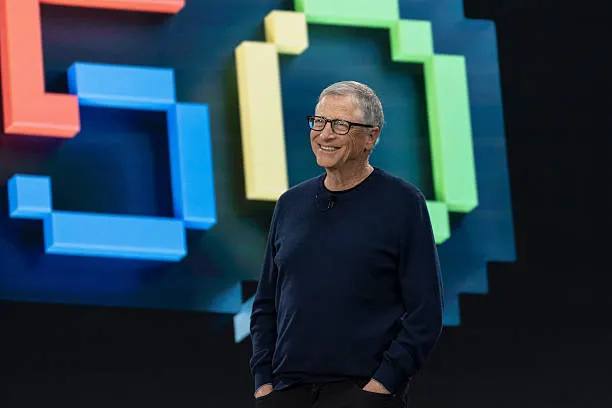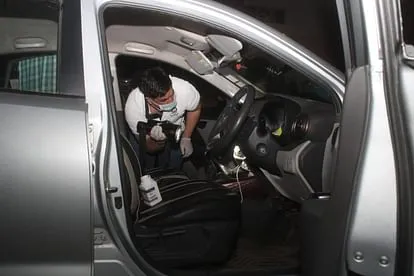Apoorva Mukhija Breaks Silence: A Deep Dive Into the ‘India’s Got Latent’ Controversy and the Dark Side of Online Fame
On April 8, 2025, Apoorva Mukhija—popularly known online as The Rebel Kid—made a powerful return to Instagram, two months after the explosive India’s Got Latent scandal forced her into a digital hiatus. In her first public post since the controversy, Mukhija shared unsettling screenshots of messages she received: acid attack threats, rape threats, and even death threats.
Her post sparked a renewed wave of discourse around influencer culture, online trolling, and the fragile intersection between digital fame and mental health. In this article, we examine the Apoorva Mukhija controversy, outline the timeline of events, and consider its implications for online harassment of influencers in India.

Who Is Apoorva Mukhija?
Before we get into the controversy, it’s important to understand who Apoorva Mukhija is. An IIT Bombay graduate turned content creator, she rose to fame through relatable, humorous, and unfiltered videos tackling societal norms and gender dynamics. Her authenticity resonated with a massive Gen-Z audience, and soon, she became one of India’s most-followed social media influencers.
Her online persona, The Rebel Kid, stood for honesty, humor, and rebellion against outdated social norms. But what happens when the rebel becomes the target?
The ‘India’s Got Latent’ Scandal: What Really Happened?
📆 Timeline of Events
February 2025: Apoorva appeared on the popular YouTube talk show India’s Got Latent, hosted by Ranveer Allahbadia (BeerBiceps) and featuring comedians Samay Raina and Ashish Chanchlani. The episode, seemingly light-hearted, soon turned controversial when a joke by Ranveer was seen as misogynistic and insensitive toward mental health and women.
Mid-February 2025: The episode triggered widespread backlash. Netizens called out not only Ranveer but also the other guests—including Apoorva—for allegedly laughing along and not condemning the remark.
Late February 2025: Hashtags like #CancelIndiaGotLatent and #ApoorvaMukhija started trending. Multiple police complaints were reportedly filed against Ranveer, and videos dissecting the episode flooded YouTube and X (formerly Twitter).
March 2025: Apoorva deleted all her Instagram posts and unfollowed everyone, signaling a retreat from social media. Rumors swirled about her mental health, while some accused her of being complicit.
April 8, 2025: Apoorva finally broke her silence. In a raw and emotional post, she revealed the extent of abuse she received and called out the dangerous culture of online vilification.
Apoorva’s Instagram Return: “Don’t Take the Story from the Storyteller”
In her post, Apoorva wrote, “You took my voice, twisted my silence, and then fed on the story you wrote in my absence.” Accompanied by screenshots of abusive DMs, her post painted a terrifying picture of what it means to be a woman with a voice on the internet.
She clarified that her silence wasn’t complicity—it was survival. She explained she had been dealing with severe online harassment, including graphic threats that affected her mental well-being.
She ended her post with a strong message to her followers: “Don’t take the story from the storyteller.”
Social Media Reactions: Divided and Loud
The post drew a mixed reaction. While a majority of her fans and fellow influencers expressed support and solidarity, others accused her of playing the victim card.
Supporters Say:
- “No one deserves the kind of hate she got.”
- “It’s so easy to attack influencers and forget they’re human.”
- “Her bravery in sharing those messages is commendable.”
Critics Argue:
- “Why didn’t she speak up earlier?”
- “Silence in moments of crisis is complicity.”
- “It felt like a calculated comeback.”
Notably, many prominent voices in the influencer and entertainment space, including Kusha Kapila, Dolly Singh, and Tanmay Bhat, posted in support of Apoorva, with the hashtag #WeStandWithApoorva trending by evening.
The Bigger Picture: Online Harassment of Influencers in India
The Apoorva Mukhija controversy is not an isolated event—it’s a reflection of a more profound, more dangerous culture festering online. In India, where social media audiences often blur the lines between critique and abuse, online harassment of influencers has become disturbingly normalized.
Why Does It Happen?
- Anonymity Breeds Cruelty: Platforms like X and Reddit allow users to post hateful comments without facing consequences.
- Celebrities vs. Influencers: Influencers, unlike film stars, are seen as more “reachable,” making them easier targets for backlash.
- Misogyny Online: Female creators face disproportionately higher levels of trolling, especially when they voice strong opinions.
- Cancel Culture Overdrive: Instead of conversation, outrage now often seeks blood. One misstep, perceived or real, invites a flood of cancelation campaigns.
The Mental Health Impact
Apoorva’s silence for two months wasn’t just a PR move—it was likely a response to mental health trauma. Multiple influencers have spoken out about anxiety, depression, and PTSD caused by digital hate. Mental health professionals confirm that online abuse can have real-world consequences, including sleep disorders, panic attacks, and suicidal ideation. Yet, India lacks a solid framework for digital protection beyond basic IT laws.
Lessons Learned and the Way Forward
- Influencers Need Support Systems: Platforms should implement better mental health support and reporting systems.
- Audiences Must Be Educated: Followers need to distinguish between accountability and abuse.
- Laws Should Evolve: Legal reforms to address cyberbullying, threats, and stalking must be prioritized.
- Media Literacy in Schools: India needs to include digital etiquette and empathy in its curriculum.
- Creators Should Speak Up: When creators like Apoorva share their stories, they empower others to do the same.
Conclusion: A Story That Needs Telling
The India’s Got Latent scandal may fade from trending lists, but the conversation it started must not. Apoorva Mukhija’s journey—from silence to speaking out—is not just her own, but represents countless others who suffer in the shadows of likes, retweets, and follows.
The internet can be both a platform for empowerment and a playground for cruelty. It’s time we choose what kind of culture we want to build.











